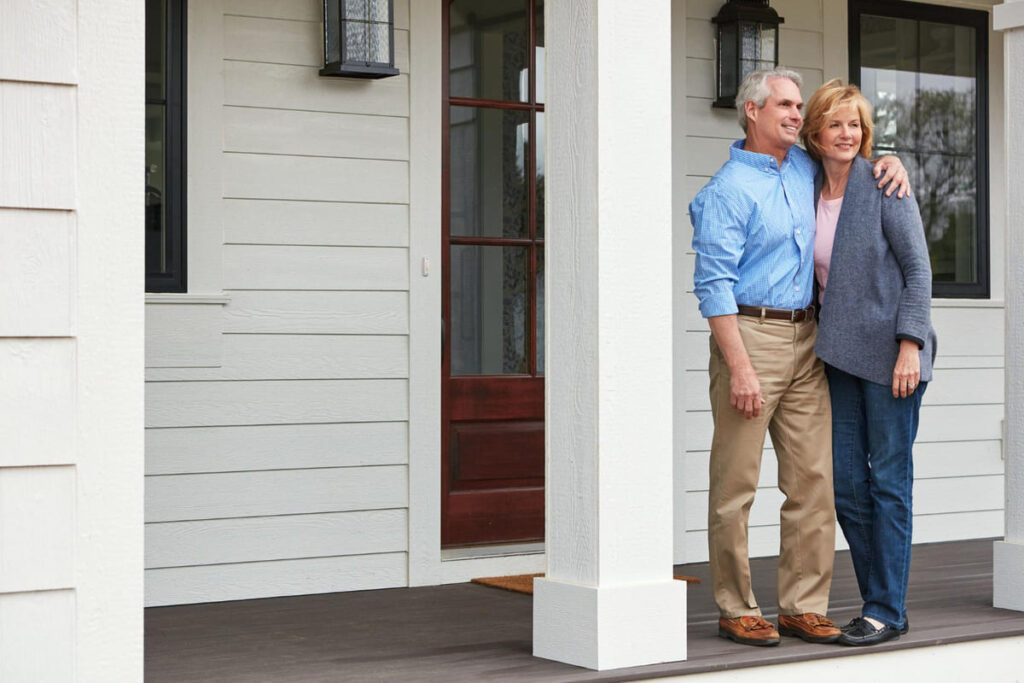10 Reasons Empty Nesters Are the Most Underrated Generation
Empty nesters often fly under the radar when people talk about important life stages. You might think of them as just parents who have seen their kids move out, but there’s a lot more happening beneath the surface during this time. It’s a period full of change, growth, and new opportunities that deserve more attention.
What makes empty nesters underrated is how they often embrace a fresh chapter in life with unexpected energy and a chance to focus on themselves in ways they couldn’t before. This phase isn’t just about loss; it’s about rediscovering your priorities and making space for new experiences.

You might notice that empty nesters hold onto the biggest homes more than any other group. They own about 28% of large homes across the country, which is nearly twice as many as millennials with kids.
This shows they have the financial means to maintain spacious places. Many baby boomers have built equity over time and have stable incomes, letting them keep these bigger homes comfortably.
Even in different U.S. regions, empty nesters consistently hold the majority of large homes. Meanwhile, millennials with children rarely own more than 18% of these big properties in any metro area.
So, when it comes to housing size, empty nesters stand out. Their ability to own bigger homes points to their economic stability and long-term planning.
They have more disposable income to spend on travel and experiences than younger generations.

You probably have more money to spend now than when your kids were living at home. Without daily expenses tied to raising a family, your disposable income is often higher. This gives you the freedom to plan trips and try new experiences without as much financial stress.
You’re not just spending on flights or hotels. Many empty nesters choose to invest in things like food tours, cultural activities, or unique local experiences. These can make travel feel more rewarding and personal.
Compared to younger generations, who often balance student loans or early career expenses, you have an advantage. Millennials and Gen Z might want to travel, but they often have tighter budgets. You can enjoy travel on your terms and explore at your own pace.
Empty nesters often downsize, freeing up the housing market for millennials and others.

When your kids move out, you might find that your large family home feels too big. Empty nesters often choose to downsize, moving into smaller, more manageable places. This frees up bigger homes for younger families and millennials who need the extra space.
Downsizing isn’t just about space—it can also mean cutting costs on maintenance and utilities. Many empty nesters look for simpler living situations, which can open up housing options in neighborhoods that were once dominated by larger households.
While not every empty nester sells their home right away, gradual shifts happen. When more people downsize, it can help ease some pressure on the housing market by adding more homes suitable for growing families. This trend may not fix affordability by itself, but it does offer more choices for buyers.
They spend less time and money on home upkeep, focusing more on their personal lifestyle.

When your kids move out, you often find yourself with more free time. You don’t have to spend as many hours on household chores like laundry or cleaning up after little ones. This means less time maintaining a busy household.
Many empty nesters choose to downsize their homes. Smaller spaces usually mean lower utility bills and fewer things to fix or maintain. This can save you money and reduce stress.
With fewer responsibilities around the house, you can focus more on hobbies, personal growth, or exercise. You might spend more time reading, working out, or doing things that make you happy.
Cutting back on home upkeep also frees up energy to build experiences. You have more chances to travel, reconnect with friends, or enjoy your interests without the constant demands of a family home.
This generation has a strong influence on culture, politics, and the economy.

You might not realize how much power empty nesters hold in shaping culture today. They’ve been a driving force behind many trends in entertainment and the arts, often setting the tone for what becomes popular or influential.
When it comes to politics, empty nesters tend to have a significant voice. They usually vote in higher numbers and often hold positions of leadership, making their opinions count when policies are made.
Economically, this group has a lot of sway. With many in their peak earning or saving years, they influence markets, investments, and spending habits. Their financial decisions help shape industries and economic trends.
You can think of empty nesters as a quiet but steady backbone. They might not always be in the spotlight, but their impact on society through culture, politics, and the economy is definitely real and lasting.
Empty nesters can afford to live in desirable locations like cities, beaches, or countryside

When your kids move out, you often find you have extra money to spend on where you want to live. Without the expenses of raising children, your budget can stretch to neighborhoods or towns you might have only dreamed about before.
You could choose a bustling city with lots of culture, like Austin or Portland, where music and arts scenes thrive. If you prefer a slower pace, beaches or countryside spots offer peace and nature without sacrificing community and amenities.
Many empty nesters pick places with mild weather and good access to healthcare, which adds comfort. Locations like Palm Springs combine these benefits with outdoor activities and an open, welcoming vibe.
Plus, some affordable cities still offer quality living with lower housing costs. You can balance lifestyle and finances by carefully picking your new home based on what fits your values and needs.
They’re redefining retirement by staying active and pursuing new hobbies

When you think of retirement, the usual image might be slowing down or taking it easy. But for many empty nesters, that’s not the case at all. You’re more likely to see them staying busy, trying out new hobbies, and keeping their minds and bodies engaged.
You might pick up a painting class, start gardening, or even learn a new language. These activities give you a sense of purpose and keep things interesting. It’s not just about filling time; it’s about discovery and growth.
Staying active doesn’t always mean exercise either. Many empty nesters find joy in traveling, volunteering, or joining clubs that fit their interests. This keeps social connections strong and helps avoid feeling isolated.
So, instead of slowing down, you actually see a lot of empty nesters shaking up retirement by learning, exploring, and staying connected. It’s a chance to enjoy life in a new way, not a time to just stop.
Their children moving out creates opportunities for multi-generational family support.

When your children move out, it might feel like a big change, but it also opens up chances to build stronger family connections. Multi-generational living, where different generations share a home or are closely involved, can offer practical benefits. You can support grandkids, help aging parents, or simply be there for each other.
Living this way means sharing daily tasks like childcare, cooking, or errands, which lightens the load for everyone. It also creates a support network where family members look out for each other’s safety and well-being. You might lend money, offer advice, or help with transportation without much hassle.
Socially and emotionally, being part of a multi-generational household can reduce feelings of loneliness or stress. You get to engage in meaningful ways while still having your independence. So, while your kids are on their own, your family support system is growing in new and useful directions.
Empty nesters often contribute time and money to community and charitable causes.

When your children move out, you often find yourself with more free time. Many empty nesters use this extra time to get involved in local charities or volunteer work. It’s a way to stay active and connected while giving back.
Financially, empty nesters usually have fewer daily expenses related to raising kids. This can free up money for donations or supporting causes that matter to you. You might find it rewarding to fund community projects or support nonprofits.
Volunteering or donating also helps many empty nesters build new social connections. This involvement can ease feelings of isolation and create a sense of purpose outside of parenting. If you’re looking for ways to engage with your community, this is a solid option.
They represent stability in housing markets, holding large homes rather than frequently moving.

You might notice that empty nesters tend to stick around in their homes longer than other groups. Many baby boomers own bigger houses, often with three or more bedrooms. These homes usually have space for hobbies, visiting family, or just extra comfort.
Because many have paid off their mortgages, there’s little financial pressure for them to sell. That means fewer houses enter the market, which can slow down turnover. So, when you’re looking at neighborhoods, you’ll often see these stable, long-term homeowners holding onto their properties.
This stability affects the housing market by keeping supply tighter. Even if some want to downsize, it’s not always financially attractive to move. You end up with these large, occupied homes rather than more frequent sales and moves.
In a way, empty nesters help anchor communities. You get consistent residents who maintain their houses and create long-lasting neighborhood ties. This kind of stability can sometimes be overlooked when people focus on fast-paced market changes.







